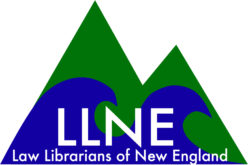Beginning on January 1, 2019, Massachusetts Law Updates has been presenting a daily series of blog posts showcasing the 30 Articles in the Declaration of Rights in the Massachusetts Constitution.
Each post will follow the same format. The post will begin with an identification of the subject of the Article, assigned for the purpose of this series, followed by the article itself. If the Article has been amended or replaced entirely, the new text follows with the date of the amendment or change. Finally, “Precedents, Following Law, and Quotations” relevant to each particular Article complete the post.
All of the Articles in the Declaration of Rights, with the notable exception of Article 3, which deals with responsibilities regarding the “public worship of God”, were drafted by John Adams. Precedents were chosen keeping in mind what may have been in John Adams’ head as he drafted the Articles. The writings of Enlightenment thinkers, men like John Locke, Algernon Sidney, and Montesquieu, influenced men like John Adams, George Mason (author of the Virginia Declaration of Rights), and James Madison (author of the Bill of Rights in the U.S. Constitution). These men had the opportunity to create governments where there had only been colonies before. The Magna Carta, the English Bill of Rights, and Nathaniel Ward’s Body of Liberties had precedential value to eighteenth century men schooled in law, philosophy and political theory. In some cases, John Adams copied text directly from other state constitutions, which had been drafted only a few years earlier. There is an abundance of secondary source literature which gives us clues, and points to these possible sources.
To put the Articles in the Declaration of Rights into context, Following Law and Quotations point to documents and commentary since 1780 that might give us a chance to better understand what the words in the Articles mean. The Bill of Rights amending the U.S. Constitution in 1791 includes cognate provisions which echo articles or sections in states’ constitutions. Presidents, judges, scholars and passionate advocates have pointed to the need to expand the provision of rights to disenfranchised groups, and given us a chance to more fully understand the implications of what John Adams wrote so long ago.
Italics indicate where text has been added to clarify why particular quotations may have been chosen.
On January 31, there will be an index providing hot links to the blog posts about the 30 Articles. A post with acknowledgments on February 1, 2019 and a list of selected secondary sources on February 2, 2019 will conclude the series.
For more information people should contact Barbara Schneider, Head Law Librarian, Berkshire Law Library (bershirelawlib@hotmail.com).
Bob DeFabrizio
Manager of Law Libraries
Massachusetts Trial Court
Office of Court Management
robert.defabrizio@jud.state.ma.us
“Serving the bench, bar, and public”
